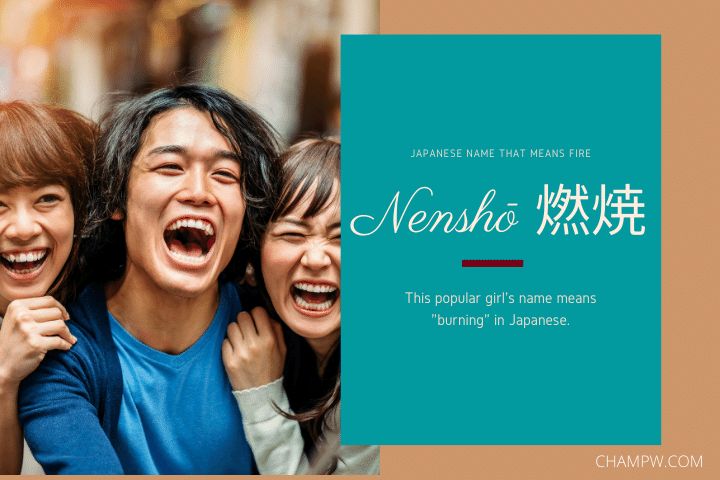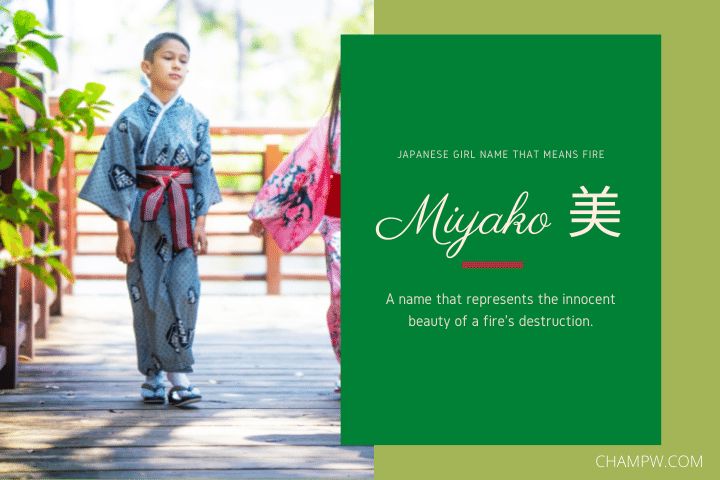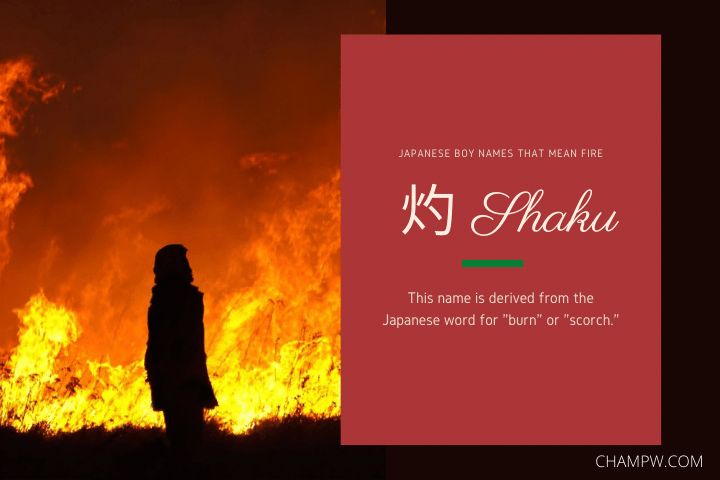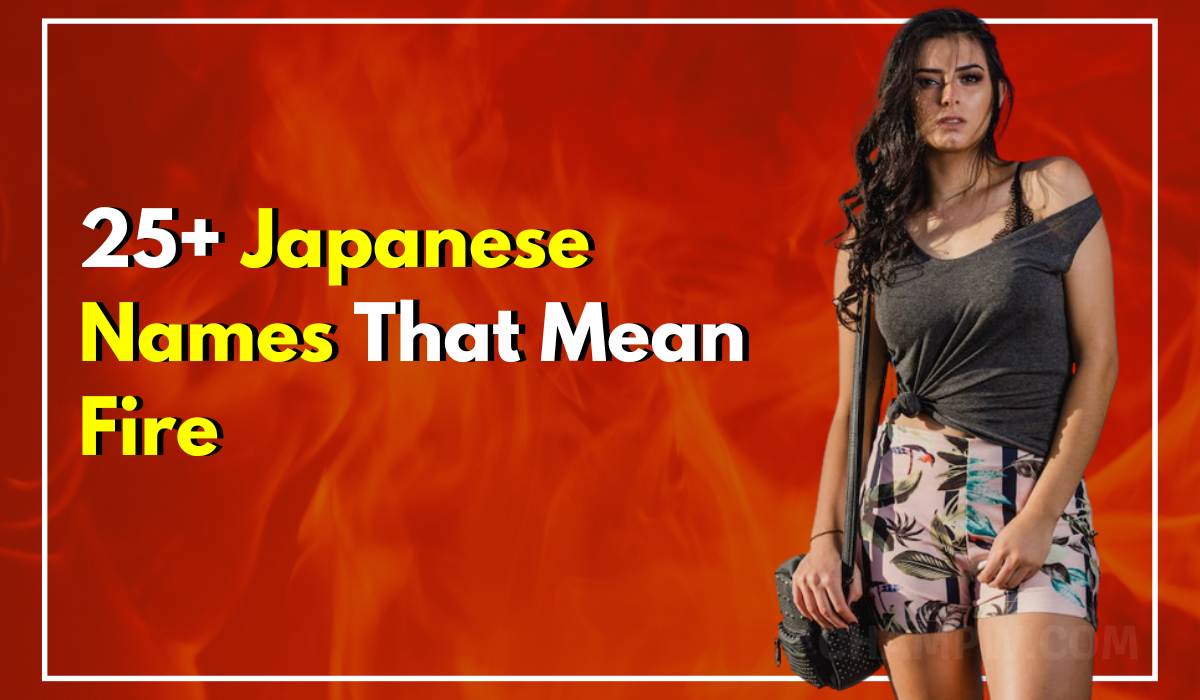Japanese names That Mean Fire are frequently associated with their thunderous sound. This is because the Japanese language contains numerous words that refer to heat and its movement. (yume), which means “girl with a fiery heart,” is one example. A second term is (kami no koto), which translates to “the voice of fire.”
Given Japan’s rich cultural and linguistic history, it is not surprising that so many Japanese names mean fire. Matsuura, Kato, and Ichikawa are three of the most well-known and well-known Japanese names.
It is not surprising that Japanese names that mean fire are also prevalent in other languages, as they are frequently used in Japan. Here are the 10 most common Japanese names that mean fire.

Japanese Names That Mean Fire
There are many beautiful Japanese names that have very special meanings. In this blog post, we’ll take a look at some Japanese names that mean fire.
1. 火の子 (Hi no ko): is a popular name for girls that means “child of fire”
2. 陽炎 (Kagerō): is a popular Japanese name for boys that means “heat haze.”
3. 焔 (Honō): This popular girl’s name means “flame” in Japanese.
4.灼熱 (Shakunetsu): This is a popular boys’ name that means “scorching heat”
5. 燃焼 (Nenshō): This popular girl’s name means “burning” in Japanese.
6. 炎 (En): This is a popular boys’ name that means “flame”
7. 焦熱 (Shōnetsu): This popular girl’s name is (Shnetsu), which means “burning heat.”
8. 灼熱地獄 (Shakunetsu Jigoku): This popular boy’s name translates to “scorching heat hell”
9. 焔滅 (Honmetsu):This is a popular name for girls that means “flame extinction.”
10. 火焔 (Kaen): is a popular boy’s name that means “fire flame.”

Japanese Girl Names That Mean Fire
There are a lot of beautiful Japanese girl names that have special meanings. If you’re looking for a name that represents the fiery passion in your little one, then look no further. In this post, we’ll share some of our favorite Japanese girl names that mean fire.
1. Aoi 碧 (blue + green): A name that represents the blue and green flames of a fire.
2. Akane 茜 (madder): is a name that represents the colour of a blazing fire.
3. Hikari 光 (light): is a name that signifies the brilliance of a fire.
4. Homura 炎 (flame): A name evoking the destructiveness and heat of a fire.
5. Kara 火 (shell): A name that represents the fire’s outer, brittle shell.
6. Miyako 美 (beautiful + child): A name that represents the innocent beauty of a fire’s destruction.
7. Rika 理 (reason + truth): A name that symbolises the lucid and concise nature of fire.
8. Sakura 桜 (cherry blossom); is a name that symbolises the fragility and beauty of a fire.
9. Shizuka 静 (quiet): A name that symbolises the tranquil and calming nature of a fire.
10. Yuki 雪 (snow): is a name that signifies the cold.

Japanese Boy Names That Mean Fire
Some popular Japanese boy names that mean “fire” include:
1. 火山 (Kazan): This name is derived from the Japanese word for “volcano.”
2. 炎 (En): This name is derived from the Chinese character meaning “flame.”
3. 灼 (Shaku): This name is derived from the Japanese word for “burn” or “scorch.”
Japanese Last Names That Mean Fire
There are many beautiful last names in Japan that have meaning. One of the most lovely is “fire.” This blog post will explore some of the most common Japanese last names that mean fire.
1. Yamamoto: Yamamoto is one of the most common Japanese surnames whose meaning is fire. Yamamoto is a very common name in Japan, which is not surprising given the meaning of the name. Yamamoto means “base of the mountain” in Japanese, which is a powerful and significant image.
2. Inoue: Inoue is an additional common Japanese surname that means “fire.” Inoue is a less popular name than Yamamoto, but it is still a beautiful one. Inoue translates to “below the well,” which is a very tranquil and calming image.
3. Kurosawa: Kurosawa is one of the most distinctive Japanese surnames that means “fire.” Kurosawa is a very uncommon but beautiful name. Kurosawa translates to “black river,” a dark and mysterious image.
Also Read:
Final words
In conclusion, Japanese names denoting fire can be found in a variety of contexts. They can also be used to express thoughts or emotions. It is important to be aware of the different meanings behind these names and to select the most appropriate one for the individual you are interested in.
